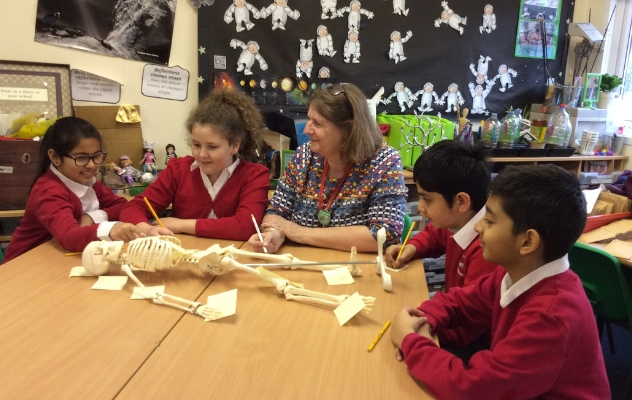Sarah Eames of Sandfield Close Primary School in Leicester, which received the 2017 ENTHUSE Award for STEM Primary School of the Year, talks about what they’re doing to inspire pupils, teachers and other schools to excel in STEM subjects.

Congratulations on the award – what impact did it have?
Thank you! I’ve had lots more meetings after school – outside teachers wanting to find out what we’re doing, and what they can do in their schools, so it’s certainly raised our profile. I know one teacher said she applied for a job at Sandfield Close because she knew about our profile in STEM… that was quite flattering!
What projects are going on within STEM at the school right now?
We started a project called #500… we did #500RecycledElephants about conservation and endangered species, and the children made something from recycled materials that fits in with that project. We’ve also done #500MigratingBirds and #500BeesBugsAndButterflies, all about pollination and why it’s important to encourage wildlife into gardens. For our next project, we’re thinking about doing #500FishInAnUnpollutedSea, as the oceans are always on the telly. They’re whole-school projects – that’s why it makes such a difference.
What tips would you advise for teachers starting out in primary STEM teaching?
Remember that science is a core subject, it’s not all just about literacy and numeracy! Do your best to persuade management that STEM is really important. The Primary Science Quality Mark is something that science leaders can complete. It helps you in your role as a leader to lead the subject rather than just caretake it.
Your school has a Space Education Quality Mark too?
Yes, space is the one thing that our whole school gets excited about. We have our space week, which we do every other year. It links in with everything from art to comprehension and so much more.
Tell us about your Eco Club.
Many Eco Schools have a committee of 12 children, but we opened it up to anybody. We have six different clubs – a litter-picker one, an energy monitor, a healthy living person, a fair-trade group etc. Now, when we talk about Eco Club they all feel part of it, which is really important for the future.
Why do you think CPD is important for teachers?
You get NQTs coming into school and they have to do so much about the reflective nature of their teaching, and when you’ve been a teacher for a while you don’t do that as much. I think it’s a vital part of you progressing as a professional to reflect on what you’ve done, the impact it’s had, and what you would do differently.

